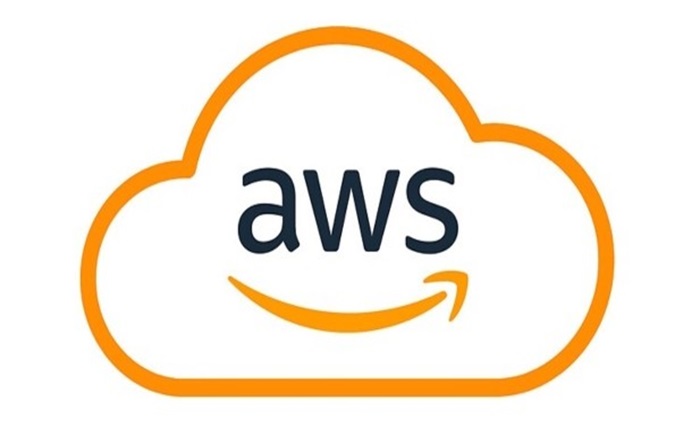Are you sick of hearing about how cryptocurrencies and blockchain are revolutionising the financial industry? Yes, us as well. But in actuality, these innovations are altering the rules of the game. You can end up falling behind if you’re not paying attention. So let’s educate ourselves!
First things first: what are cryptocurrency and blockchain? In a nutshell, blockchain is a decentralised ledger technology that eliminates the need for a middleman and enables safe and transparent transactions. A digital asset known as cryptocurrency employs cryptography to safeguard transactions and regulate the generation of new units. Together, these technologies present a new, quicker, more effective, and more secure way of thinking about finance.
Blockchain technology and cryptocurrencies are particularly significant in the context of the USA because they have the ability to democratise money and level the playing field for all. Financial transactions won’t be restricted to people with access to conventional banking systems anymore. But there are also potential hazards and negatives to take into account, just like with any new technology. The history of blockchain and cryptocurrencies in the USA, the advantages and disadvantages of using them in the financial sector, the state of regulation and legal issues at the moment, practical applications, investment opportunities and hazards, and more will all be covered in detail in this article. So fasten your seatbelt and get ready to surf the next financial tsunami.
The American history of cryptocurrencies and blockchain
Despite having a brief history, blockchain technology and cryptocurrencies have grown and evolved significantly in the US. Since the launch of Bitcoin, the first cryptocurrency, in the early 2010s, these technologies have been developing rapidly in the United States. The majority of people who used technology at the time were enthusiasts and knowledgeable users.
Since then, new cryptocurrencies have been released, and blockchain technology is now being used in a wide range of businesses. Both the market and technology have evolved rapidly. Cryptocurrencies already have a market value in the hundreds of billions of dollars, and more companies and institutions are accepting them as payment.
The development of the first Bitcoin ATM in 2014, the introduction of Ethereum in 2015, and the proliferation of initial coin offers (ICOs) in 2017 are significant turning points and events that have impacted the blockchain and cryptocurrency landscape in the USA. The creation of regulatory frameworks for blockchain technology and cryptocurrencies has also significantly impacted the scene. It will be interesting to observe how these technologies influence the future of finance in the USA and elsewhere as they develop further.
The advantages and disadvantages of cryptocurrencies and blockchain in finance
The use of blockchain technology and cryptocurrencies in financial transactions has a number of potential advantages. Without the use of middlemen, blockchain technology provides a more transparent and secure method of completing transactions. Additionally, it might reduce transaction costs, expedite settlement processes, and improve effectiveness. On the other side, cryptocurrency gives folks who might not have access to conventional banking systems more financial flexibility and accessibility.
The use of these technologies can, however, have negative effects and present hazards. Blockchain technology and cryptocurrencies are decentralised, which can make it challenging to govern and prevent fraud and money laundering. Additionally, some people may find investing in cryptocurrencies to be dangerous due to their price volatility.
Overall, blockchain technology and cryptocurrencies are likely to have a big impact on American banking. The advantages of these technologies could result in a more democratic and effective financial system, even though there are possible risks and difficulties to be resolved. Navigating this new wave of finance will require a balanced viewpoint that takes into account both the advantages and threats.
Lawful and regulatory considerations
The United States’ current regulatory environment for blockchain technology and cryptocurrencies is complicated and dynamic. There is no federal framework in place, despite the fact that several states have established legislation to control the usage of cryptocurrencies. Businesses and investors in the sector are now unsure as a result.
The proposed infrastructure bill, which has provisions that could affect the taxation and regulation of cryptocurrencies, is one example of recent legislative reforms. The SEC has also been actively pursuing unregistered securities offers and fraudulent initial coin offerings.
Consumers and businesses alike should be aware of potential tax repercussions as well as regulatory issues including anti-money laundering and know-your-customer regulations. To maintain compliance, it’s crucial to stay up to date on the regulatory environment and cooperate with legal and financial experts.
Applications of blockchain and cryptocurrencies in banking in the real world
Numerous applications of blockchain technology and cryptocurrencies are currently being used in US banking. A few banks and financial institutions are looking into using blockchain technology to handle payments more quickly and securely. Additionally, cryptocurrency is utilised as a store of value, for small payments, and for remittances.
Supply chain management, decentralised finance (DeFi) applications, and digital identity verification are a few potential future use cases for these technologies in the sector. Challenges include the lack of legislative clarity and the need for increased interoperability across various blockchain systems, while notable triumphs include the successful implementation of blockchain-based payment systems by some organisations.
Overall, there are a wide range of possible uses for blockchain technology and cryptocurrencies in American finance. It will be interesting to watch how these technologies are adopted and incorporated into the sector in the years to come.
Investment possibilities and dangers
There are many cryptocurrency and blockchain investment options in the USA, and investors have access to a wide variety of digital assets. Investing in cryptocurrencies can yield substantial returns, particularly when the market is in a bull run. Furthermore, blockchain technology has the ability to upend established markets, creating new business models and investment opportunities.
The possible dangers and difficulties associated with investing in these technologies include volatility, a lack of legislative certainty, the possibility of fraud, and security breaches. Before making an investment, it is crucial for investors to do extensive study and comprehend the technology and industry dynamics.
It is advised to diversify your portfolio and start small while investing in this field. It’s also critical to keep up with market trends and seek advice from monetary experts with knowledge of the blockchain and cryptocurrency industries.
Conclusion
The ability to change how we conduct business and make investments is what makes blockchain and cryptocurrencies the new financial fad in the USA. The history and development of these technologies, as well as their potential advantages and disadvantages, regulatory and legal issues, and practical uses in finance, have all been covered in the article.
The blockchain and cryptocurrency industries provide a lot of potential for growth and innovation, despite the difficulties and risks involved. We may anticipate seeing financial transactions becoming more efficient, secure, and transparent as more companies and financial institutions use these technology.
It will be interesting to see how blockchain technology and cryptocurrencies develop over the coming years and how they affect the financial sector. It is obvious that these technologies are here to stay as new use cases and applications continue to appear.
There are numerous resources accessible for readers who wish to learn more, including trade organisations, online classes, and books on blockchain and cryptocurrencies. To make wise investing decisions, it is critical to remain knowledgeable about technology and market conditions.
Read More You May Like:














Post Comment